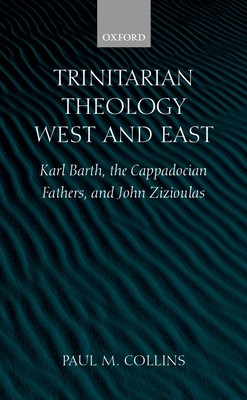
- We will send in 10–14 business days.
- Author: Paul M Collins
- Publisher: Oxford University Press, USA
- ISBN-10: 0198270321
- ISBN-13: 9780198270324
- Format: 14.3 x 22.4 x 1.9 cm, hardcover
- Language: English
- SAVE -10% with code: EXTRA
Reviews
Description
This book is a unique contribution to the dialogue between the traditions of Eastern and Western Christian thought. Through the writings of Karl Barth and John Zizioulas, Collins creates an ecumenical dialogue about Trinitarian thought. During the last decade the doctrine of the Trinity and the concept of koinonia have been much in evidence in ecumenical contexts. Collins looks beyond the growing ecumenical consensus to examine the origin for the basis for the consensus, and suggests that it is possible to root it in Western thought as well as in Eastern Orthodoxy.
EXTRA 10 % discount with code: EXTRA
The promotion ends in 19d.23:32:26
The discount code is valid when purchasing from 10 €. Discounts do not stack.
- Author: Paul M Collins
- Publisher: Oxford University Press, USA
- ISBN-10: 0198270321
- ISBN-13: 9780198270324
- Format: 14.3 x 22.4 x 1.9 cm, hardcover
- Language: English English
This book is a unique contribution to the dialogue between the traditions of Eastern and Western Christian thought. Through the writings of Karl Barth and John Zizioulas, Collins creates an ecumenical dialogue about Trinitarian thought. During the last decade the doctrine of the Trinity and the concept of koinonia have been much in evidence in ecumenical contexts. Collins looks beyond the growing ecumenical consensus to examine the origin for the basis for the consensus, and suggests that it is possible to root it in Western thought as well as in Eastern Orthodoxy.


Reviews